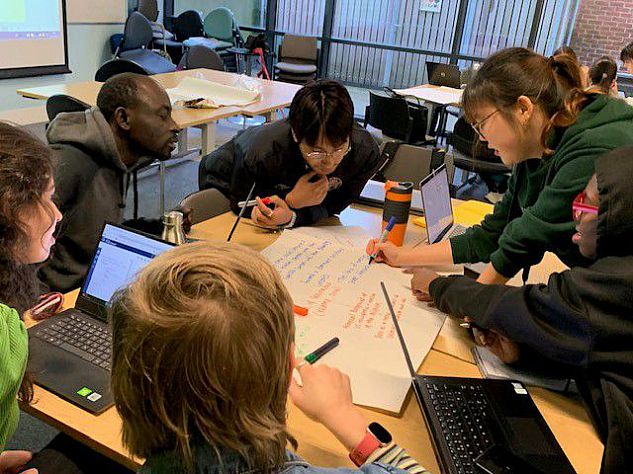Teaching
The Centre for International Education (CIE) has a long and proud history of providing high-quality, research-led taught courses to students and practitioners from around the world in a truly international and multi-cultural environment.

Our graduates go on to a wide variety of careers in international organisations, national education ministries, educational institutions, NGOs and universities.
CIE has a number of courses and modules at all study levels in the field of International Education and Development based within the Departent of Education at the School of Education and Social Work.
Undergraduate teaching
As an undergraduate student, you can personalise your course by choosing elective modules or a combination of elective modules, which we call a pathway.
There are several international education modules that are led by CIE academics which you can choose as elective modules. There is also an International Education and Development Pathway.
Click on the link below and browse the modules and pathways offered by Education and Social Work:
Find out more about Pathways and Electives here!
Postgraduate teaching
Do you work – or wish to work – on educational issues in aid agencies, multilateral agencies, NGOs, consultancy and research firms, government ministries and academia?
Our International Education and Development MA has established its reputation over three decades and is highly regarded internationally. Our faculty enjoy a global reputation as leaders in their field and have contributed to education and development policies around the world. You’ll study with students from across the globe and benefit from our large network of alumni.
Find out more about our International Education and Development MA (MAIED) here!
Doctoral
The PhD in International Education and Development gives you the opportunity to develop specialist knowledge in the field of development and education and to hone advanced research skills in methodologies appropriate for contexts in low-income countries.
Our doctoral researchers come from all over the world and this PhD will help advance your professional career.
Find out more about our International Education and Development PhD here!
.